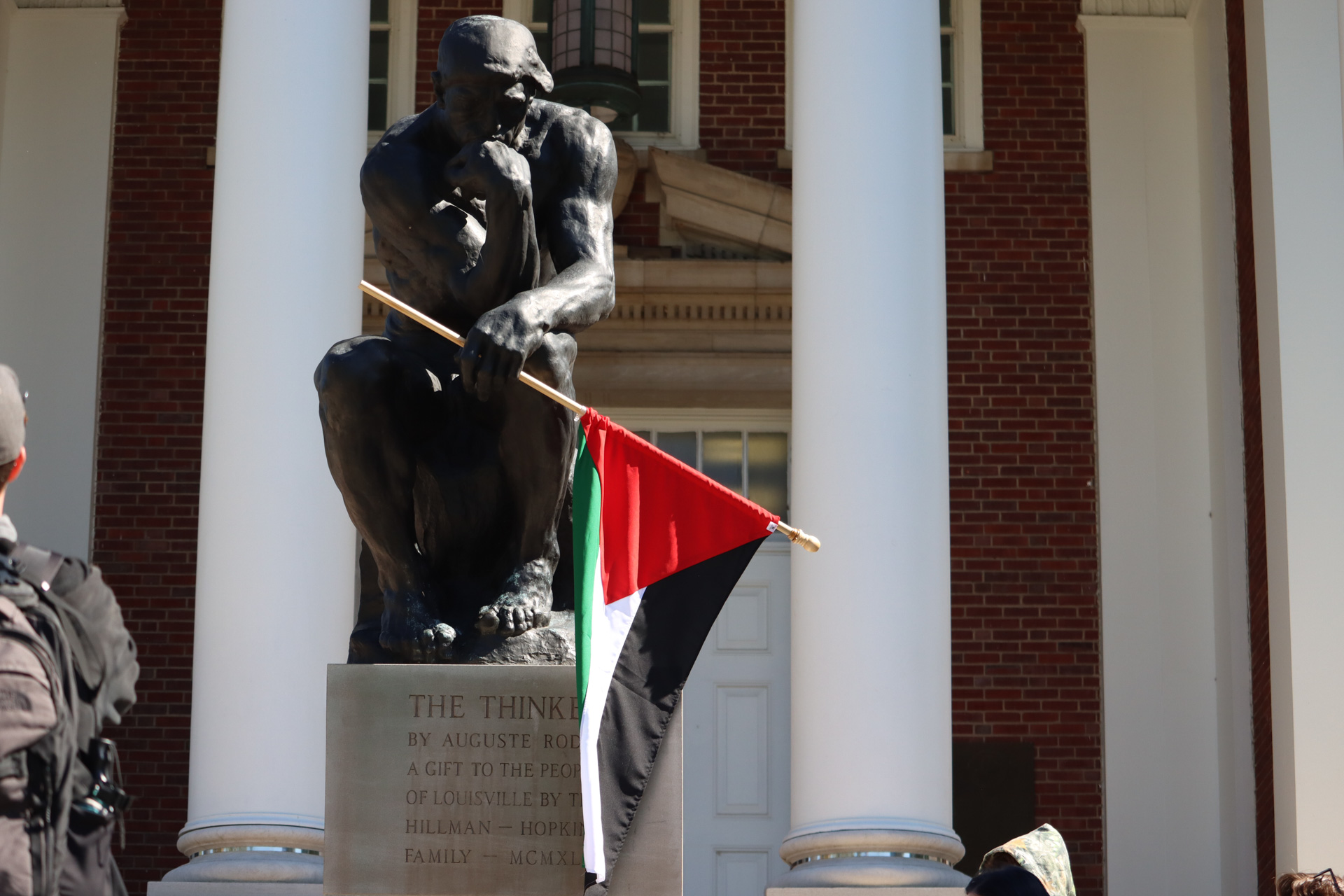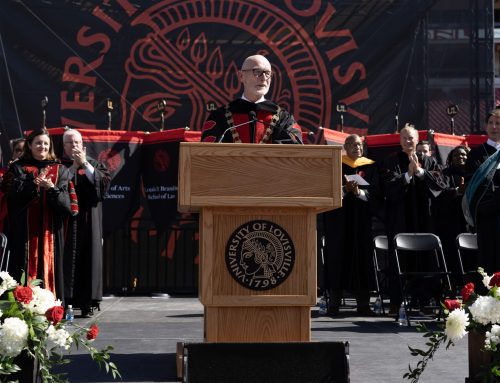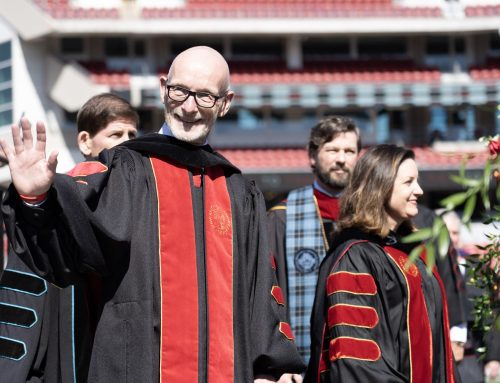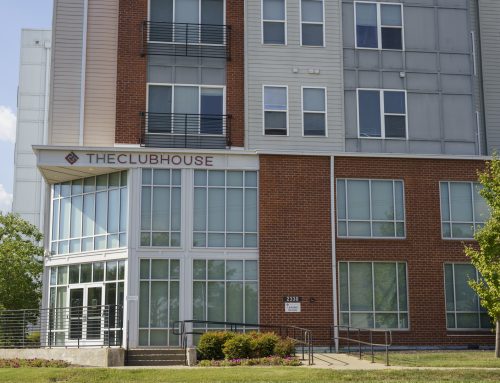By Brennan Allen
Oct. 7, 2025, marks two years since the escalation of the genocide occurring against Palestinians living in Gaza, at the hands of Israel. According to Gaza’s Health Ministry, more than 67,000 Palestinians have been killed and almost 170,000 injured.
Despite these atrocities, the University of Louisville’s campus houses multiple student-led groups that have not stopped fighting for the Palestinian people’s liberation.
Louisville Students for Justice in Palestine began on U of L’s campus over 15 years ago, with a mission to educate students about Palestinian culture and Gaza’s struggle with Israeli apartheid and occupation. But after the bombardment on Gaza’s strip escalated in October 2023, the organization’s mission changed to calling for the University of Louisville to divest and sever all its ties with Israel.
“Our board of trustees, that decides how funds are dispersed within the university, uses the endowment money to invest in companies like Toyota and GE Aerospace. Those companies are directly complicit in helping Israel carry out this genocide,” said Xavier, the president of LSJP.
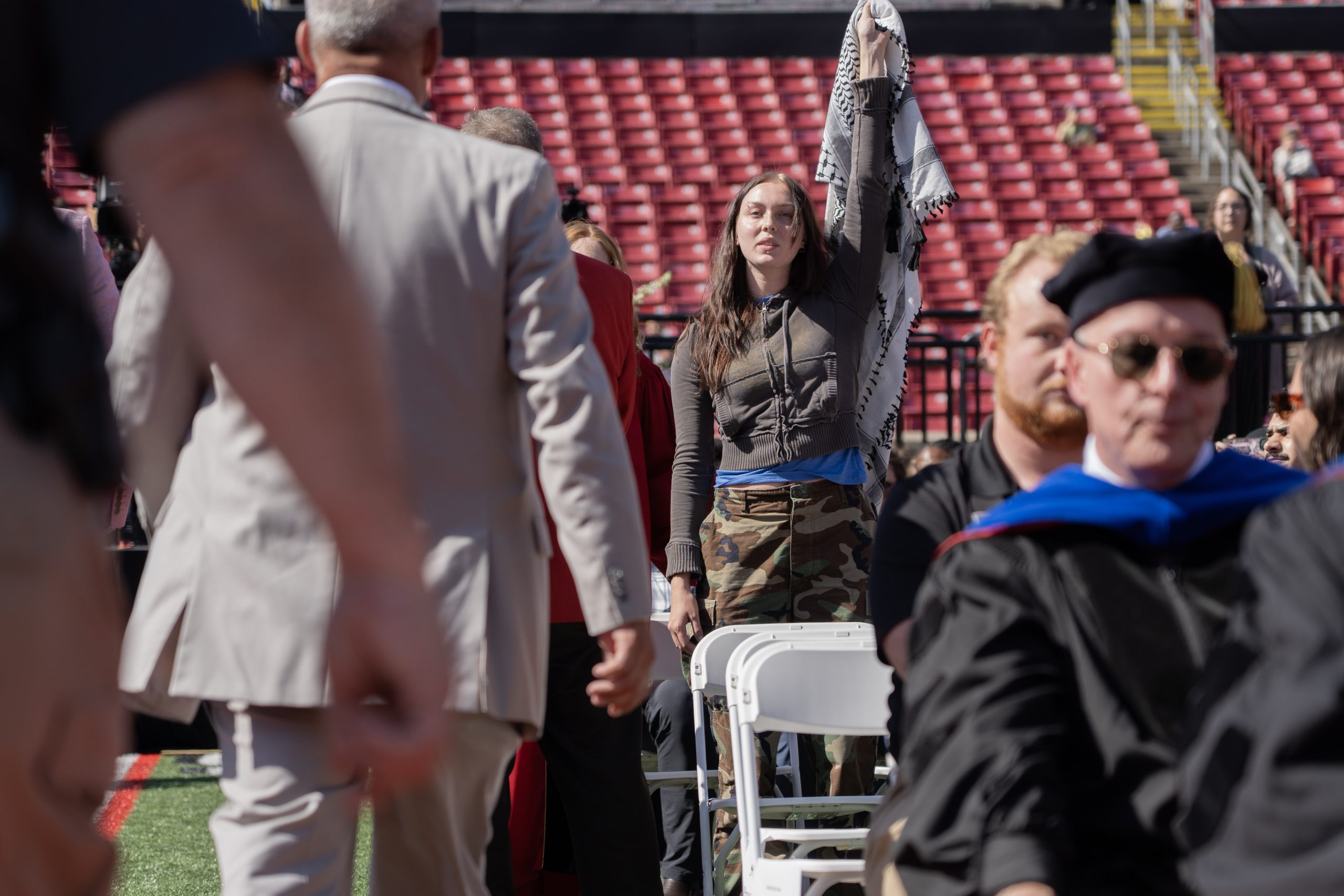
An LSJP member raises a Keffiyeh in protest at the inauguration, Oct. 10, 2025. (Photo by Jai’Michael Anderson/The Louisville Cardinal)
Their mission to shed light on the university’s complicity in the genocide occurring in the Gaza Strip does not come without pushback from the administration.
From Oct. 8-11, LSJP held what they called a “Week of Rage”, a week full of events to recognize the two years since the escalation of genocide in Gaza. On Oct. 8, LSJP held a people’s tribunal in the Humanities Quad of UofL’s campus alongside the Young Democratic Socialists of America and the Bluegrass Student Collective.
Their mission was to call out UofL’s current president, Gerry Bradley, and what they refer to as his “Board of Butchers” for their refusal to listen to students.
University of Louisville police officers and administrators quickly and significantly outnumbered organizers. The organizers were asked to no longer use amplified sound, despite other on-campus organizations not having to adhere to those same restrictions. After organizers continued to use amplified sound, administrators and police officers threatened every student present with a code violation.
“The University’s motivation in suppressing us doesn’t seem like outright Zionism at first, but it’s rooted in their interest in keeping the status quo. That’s a problem, because the university is trying to act like it’s completely apolitical when we see that the Board of Trustees is invested in entities that are helping to carry out political atrocities,” said one member of LSJP.
LSJP and other student groups that share their same mission have continued to stand up against the university’s pushback because many years ago students fought a similar fight for divestment and won.
In 1985, the University of Louisville’s Board of Trustees voted to divest from companies that invested in South Africa’s apartheid government. This decision came after repeated pressure from student groups, purposeful activism, and community organizing.
Ironically, on Oct. 8, 2025, the same day as the People’s Tribunal, U of L held a panel to mark the 40th anniversary of the Board of Trustee’s vote to divest from South African apartheid.
“This university was the first in the region, as well as the general South, to divest from South African apartheid. So, it ain’t nothing new,” said Xavier. “The University of Louisville, at least the folks in it, have set precedent. The precedent must be recognized today, otherwise who knows how that momentum will be lost?”
LSJP and others have been trying to continue that same momentum amongst student activism that once was on campus.

Members of U of L SJP hold up signs to encourage divestment from Israel, Sept. 11, 2025. (Photo by Vinny Porco/The Louisville Cardinal)
Their divestment campaign first began in May 2024, making it clear to the Student Government Association that the students want the university to, “divest from complicit endowment funds and end partnerships with companies providing Israel with weapons and technology to carry out genocide against the Palestinian people,” according to LSJP’s Instagram.
SGA allows students to bring issues or demands to the table for them to vote on if they can garner enough signatures to do so. LSJP’s divestment campaign received over 1,300 signatures from students, faculty, registered student organizations and alumni combined.
“The resolution would require them to ask admin for divestment and perform other measures to ensure the recognition of Palestine on campus. But they (SGA) got specific with other minute demands, tabled it to another committee, and then eventually killed it entirely.”
In March 2025, SGA voted to kill the divestment resolution in what LSJP referred to as a “undemocratic maneuver”. According to LSJP, senators did not research the bill despite being given over a week to do so and refused to engage in discussion on the resolution.

An SGA senator gives a statement on the vote to push for divestment, March, 18, 2025. (Photo by Jai’Michael Anderson/The Louisville Cardinal)
LSJP then moved to taking their demands to President Gerry Bradley this past summer, emailing him three times in hopes of setting up a meeting with him in July. The student led group called on him to sever university ties with Israel and fully divest from the genocide.
“He didn’t even give us the respect of getting an email back. We were completely ghosted,” said Xavier. “There’s a lot of changes that this university needs. And we don’t think it’s going to come from the folks implanted into office right now; it must come from students, faculty and staff.”
Through the unanswered emails and unrecognized efforts, LSJP continues to fight to set up what they refer to as a “Popular University,” a coalition amongst student groups to unite individual struggles.
“We are trying to create this Popular University, because if you’re isolating the politics from the people, eventually it’s going to come back to you and you’re not going to expect it,” Xavier said.
Right now, the coalition consists of three student groups: Louisville Students for Justice in Palestine, Bluegrass Student Collective and United Campus Workers. Their demands are for a campus that is anti-genocide, practices university wide democracy, and protects its students. Their motto is, “A university for the people, by the people.”
“SGA is supposed to represent the student body, but we are so isolated from it. I think that is a part of a greater issue. That this campus, which they have done successfully, has isolated its student and campus politics from the students and the campus,” said Xavier.
Through the creation of a “Popular University” and LSJP’s many other community organizing efforts, they are hoping to return the political power back to the students. The road to get there has been nothing but smooth, but to that the president of LSJP says, “Change does not come from comfort, but by God, change is necessary.”
Photo by Sara Montoya/The Louisville Cardinal

